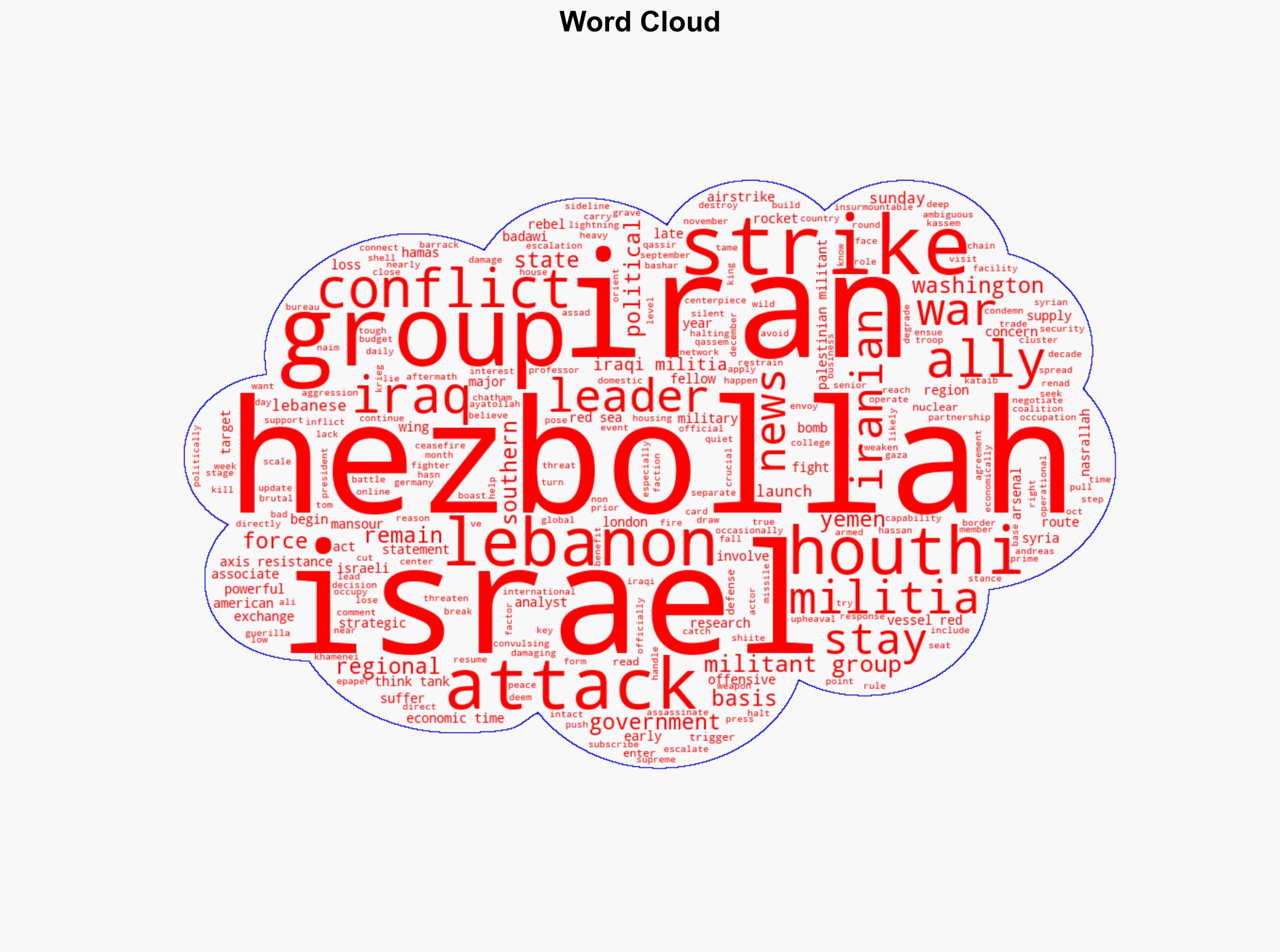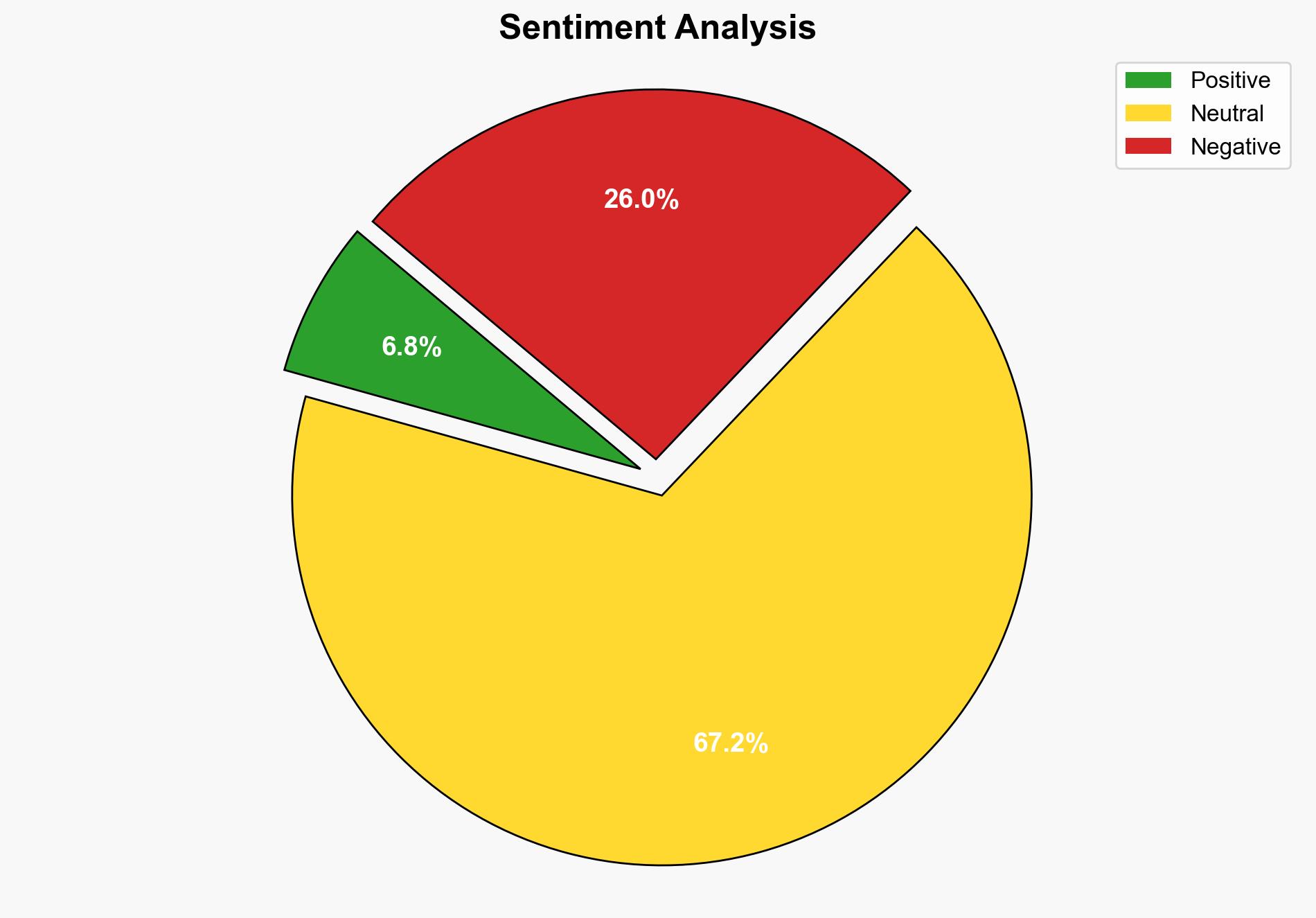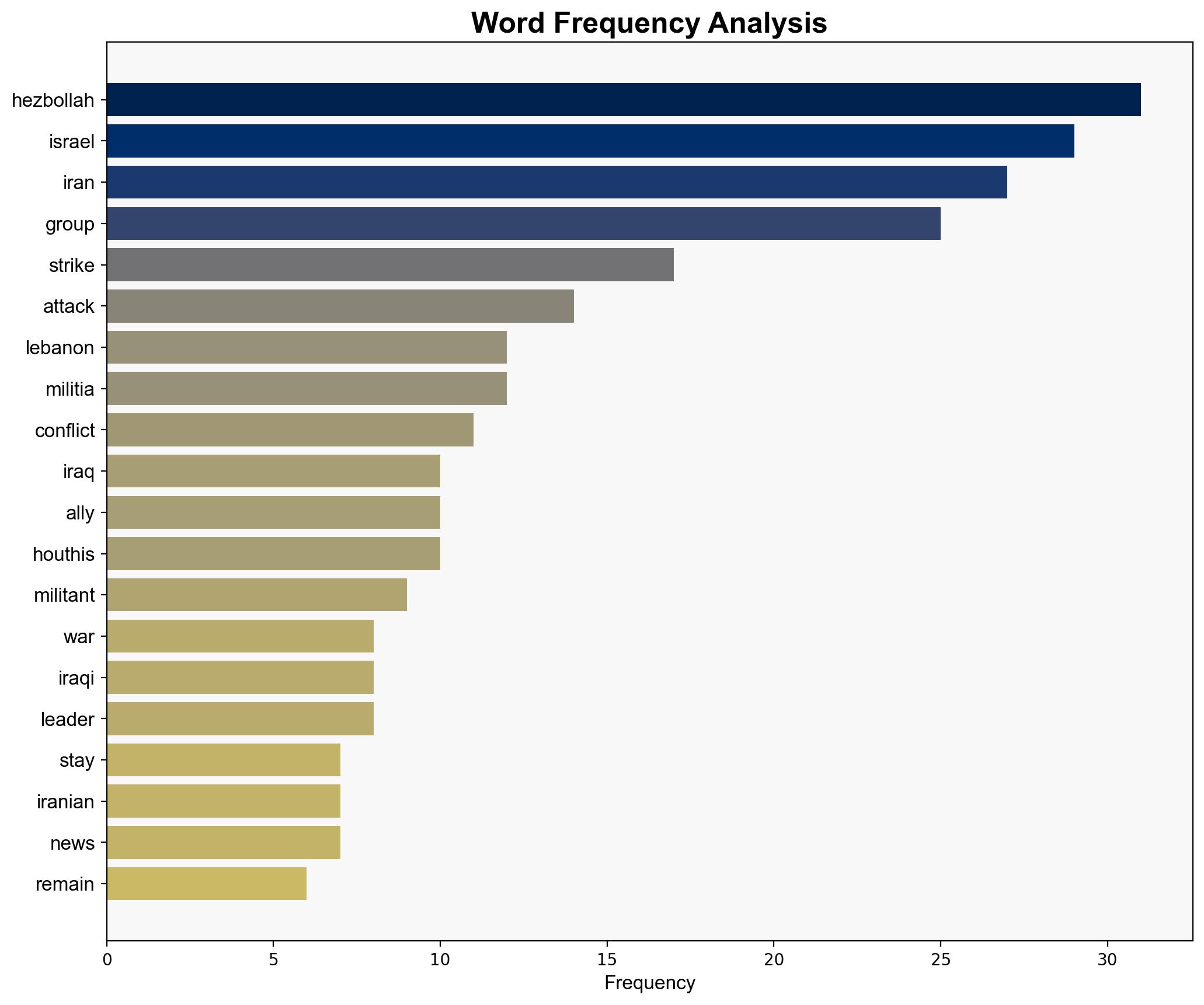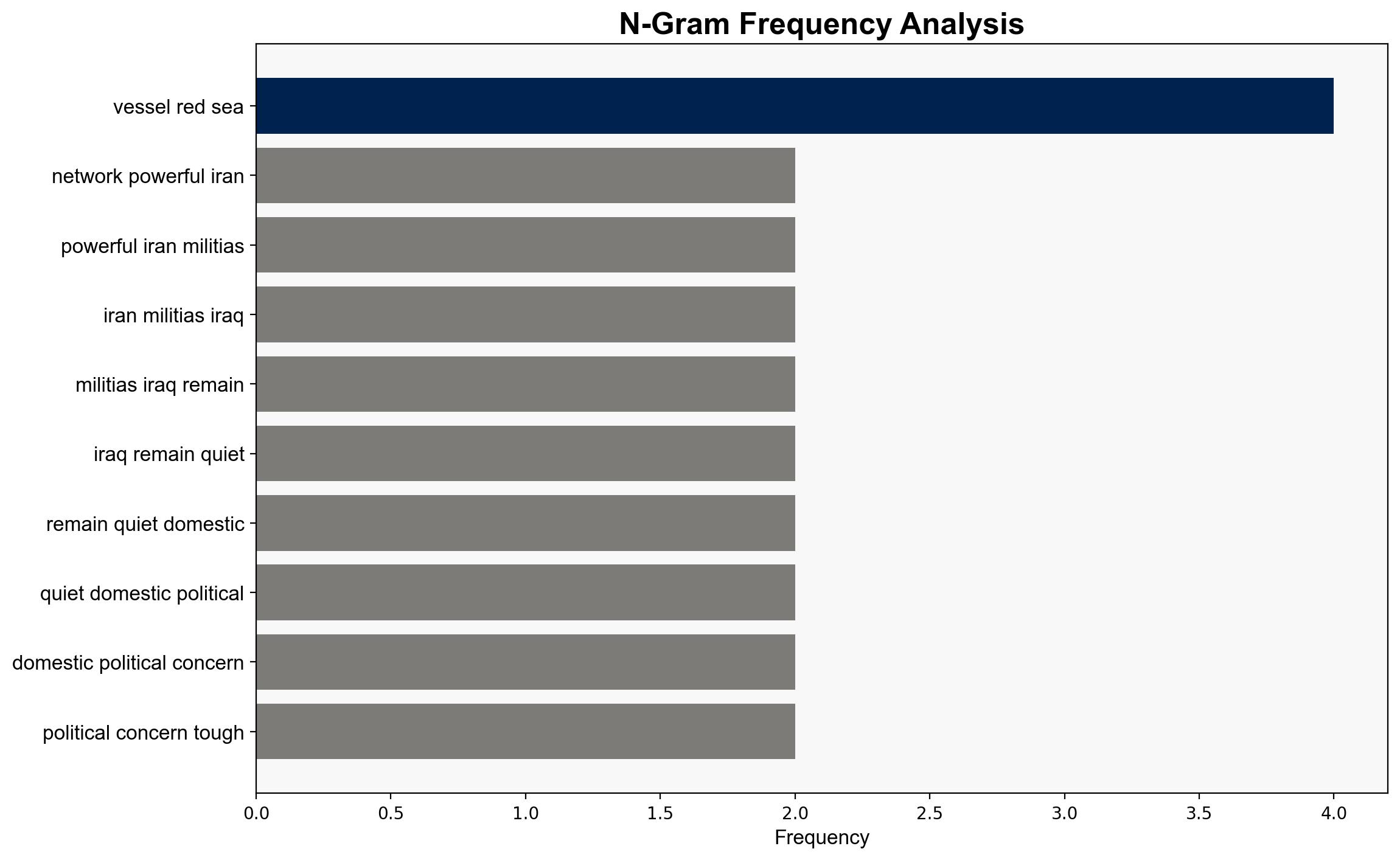Why some key Tehran allies have stayed out of the Israel-Iran conflict – The Times of India
Published on: 2025-06-22
Intelligence Report: Why some key Tehran allies have stayed out of the Israel-Iran conflict – The Times of India
1. BLUF (Bottom Line Up Front)
Key Tehran allies, including Hezbollah and various Iranian-backed militias, have refrained from engaging in the Israel-Iran conflict due to domestic political concerns, past military losses, and strategic calculations. This restraint is influenced by the potential for severe regional destabilization and the desire to avoid direct confrontation unless provoked. The report recommends monitoring these groups for shifts in posture that could alter the current balance.
2. Detailed Analysis
The following structured analytic techniques have been applied to ensure methodological consistency:
ACH 2.0
Hezbollah and other militias are likely avoiding escalation to preserve their strategic assets and avoid further losses, as evidenced by their limited responses to Israeli actions.
Indicators Development
Monitor communications and movements within these groups for signs of mobilization or changes in rhetoric that could indicate a shift towards engagement.
Narrative Pattern Analysis
Current narratives emphasize defensive postures and condemnation of Israeli actions without committing to offensive operations, suggesting a focus on maintaining internal cohesion and regional influence.
Network Influence Mapping
Hezbollah and allied militias maintain influence through regional networks, leveraging political and military ties to sustain their positions without direct conflict involvement.
3. Implications and Strategic Risks
The restraint shown by Tehran’s allies reduces immediate regional conflict risks but highlights vulnerabilities in their strategic depth. Continued Israeli actions could provoke a response, potentially drawing these actors into a broader conflict. Cyber and economic dimensions remain susceptible to exploitation, with potential cascading effects on regional stability.
4. Recommendations and Outlook
- Enhance intelligence monitoring of Hezbollah and allied militias for early warning indicators of engagement shifts.
- Engage in diplomatic efforts to de-escalate tensions and reinforce regional stability.
- Scenario Projections:
- Best Case: Continued restraint leads to diplomatic resolutions and reduced tensions.
- Worst Case: Escalation leads to widespread conflict involving multiple regional actors.
- Most Likely: Ongoing low-level engagements with periodic escalations contained through diplomatic interventions.
5. Key Individuals and Entities
Hassan Nasrallah, Naim Kassem, Qassem Qassir, Andreas Krieg, Renad Mansour
6. Thematic Tags
national security threats, cybersecurity, counter-terrorism, regional focus




